Fall
“Meeting Through Finitude”
By Garrett Glaeser

Abstract: This thesis explores the essential importance of the personal confrontation with death (finitude) as a condition for leading a meaningful life. The subject of immortality will be considered, and it will be argued that there exists a point at which it would be better to die than live longer. Further, a legacy will be presented as being a valuable and meaningful way to positively impact the world once one no longer exists in it. Finally, it will examine the ethical dimension of finitude: how best to live in light of one’s inevitable end. It will be proven that by examining one’s death, one better appreciates one’s life and is inspired to live well and be thankful for ever having lived at all.
“Back of the Line: COVID-19 Healthcare Rationing and Cognitive Disability”
By Anita Woofenden
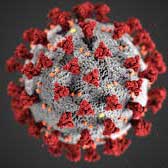
The COVID-19 pandemic initiated circumstances wherein policy-makers and healthcare providers have had to make the impossible choices of who receives life-saving healthcare when there is a shortage of resources. While these rationing policies have, at times, been necessary, they have consistently sent people with cognitive disabilities to the back of the rationing line, whether explicitly and through a long-standing history if discrimination against those with cognitive disabilities. I first examine various historical philosophical figures on disability, which shows a general history of exclusion in Western thought from Plato, to Kant, to modern bioethicists, Jeff McMahon and Peter Singer. I then discuss two prevailing rationales for putting people with cognitive disabilities at the back of the rationing line: presumed quality of life and utility of these individuals. To each of these reasons, I propose ethical counter-points that draw on the care ethics of disability philosopher, Eva Feder Kittay, as well as her writing of the inherent connection between philosophy and policy. I ultimately use these ethical counter-arguments to argue that ability or disability must not be considered in healthcare rationing in any capacity regardless of the severity of the context in which such decisions are made. https://www.fda.gov/food/food-safety-during-emergencies/food-safety-and-coronavirus-disease-2019-covid-19
“The Free Will/Determinism Debate: Neuroscience, Quantum Mechanics, and Ethics”
By Chandler Wyman
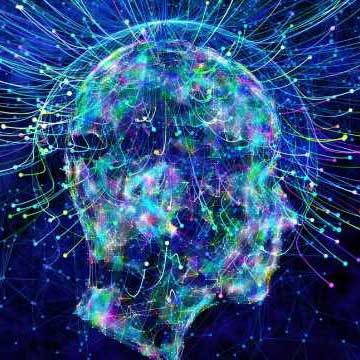
Abstract: The focus of this paper is on the metaphysical question of whether or not free will exist and its implications for moral responsibility. It would seem that determinism renders any discussion of ethics futile, but this paper will argue that whether free will is an illusion or not, it is best to live as if free will does not exist. This paper will not solve the great debate over whether or not humans have free will, but it will present the case for determinism against arguments for free will and argue for how and why we should live in light of determinism.
“Relationship Issues: The Modern Philosopher’s Guide to Scientific Involvement”
By Rein Deaton
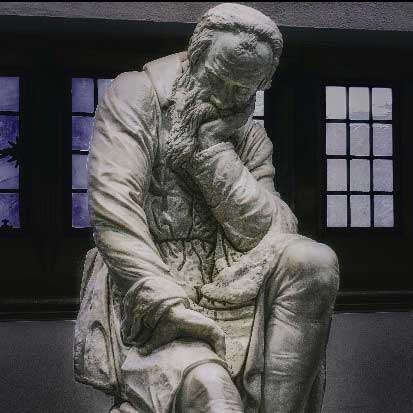
Abstract: In the current day, many people consider science and philosophy to be entirely distinct fields with little, if any, overlap. However, this is a very recent phenomenon, and is only an intelligible position to take after science split off from philosophy approximately two hundred years ago. Since this split occurred, there have been countless negotiations and renegotiations of what the relationship between these two fields should be. In my thesis, I consider the question of what philosophy’s relationship to science should be and the answers of three prominent thinkers as well as the developing field of experimental philosophy. By clarifying the role of science in philosophy, one is able to better understand and utilize the methodologies of philosophy and their roles in discovering truth, meaning, and insight.
“The Emotions in Academic Philosophy”
By Randy Feeley

Abstract: Why is Academia so hostile to emotion? Too many marginalized people have stories of being told to ‘calm down’ during a regular discussion or that the passion they hold for a subject is bias that invalidates their research. This paper first explores the exclusion of emotion in ‘Western’ thought by uncovering its roots in the pre-Socratic notions of separate ‘worlds of reason’ and ‘worlds of sense’. The paper then explores traditions where reason and emotion are not separate. The Confucian heart-mind sees reason and emotion as parts of a whole mechanism of thinking instead of a dichotomy, and feminist anti-colonialist philosophers such as María Lugones and Alison Bailey see emotion as a key aspect of human relationships. In the third chapter, using these non-Western ideas, I propose an alternative treatment of emotion in Academia that makes it more open to the diversity it is sorely lacking by recognizing the real role that emotion plays in how people interact with the world. This treatment of emotion does not make philosophy less ‘rigorous’, as the pre-Socratics would fear, but instead introduces new depth and considerations to the field of philosophy as a whole.
“Grappling with Meaninglessness An Analysis of Nihilism”
By Ryan Mahokey

Abstract: Nihilism is seen as a path to apathy, tyranny, despair, and hopelessness. Theologians and philosophers alike have attempted to defend the presence of an inherent, objective meaning to life for thousands of years so that people may escape the dread of nihilism and life’s absurdity. And yet, the positive aspects of a nihilistic outlook are rarely discussed, and our need for objective meaning is rarely debated. Through using the work of Friedrich Nietzsche, Albert Camus, Emil Cioran, and others, I attempt to show the hopeful side of nihilism that liberates people to live their own lives without the toils and snares of archaic and unreliable structures of meaning. Nihilism is a philosophy that can possibly influence one’s outlook on morality, epistemology, ontology, and skepticism. Within this work I treat nihilism like many others would treat ethical systems or religious beliefs; I explore the benefits of it and how it can serve people's lives if they embrace it.
“Why Fascism is Present in Modern Day American Democracy”
By Laura Winters
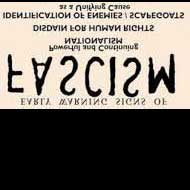
Abstract: Fascism is often considered the antithesis of democratic societies. However, fascism has been present in American democracy since its origin, stemming from slavery up until modern day minority oppression and racial injustice. Fascism is capable of functioning in modern day American democracy through networks of relations and social and political conditions. Fascism depends on the cooperation and mobilization of individuals and their like-minded groups who possess potentially fascist personality traits. These individuals are more easily manipulated by fascist rhetoric and propaganda spread online through the internet and media sites. In order to prevent fascism from further manifesting in democratic societies, individuals must practice lateral thinking and reinforce truth and rationality. It is also the media’s responsibility to uphold truth as much as possible. This way, fascist traits and tendencies can be identified and fascism overall can be dissolved before it negatively impacts American democracy.
Spring
“Trademarking Culture: Resolving the Tension between Property Protection and Free Speech”
By Kelly Curran
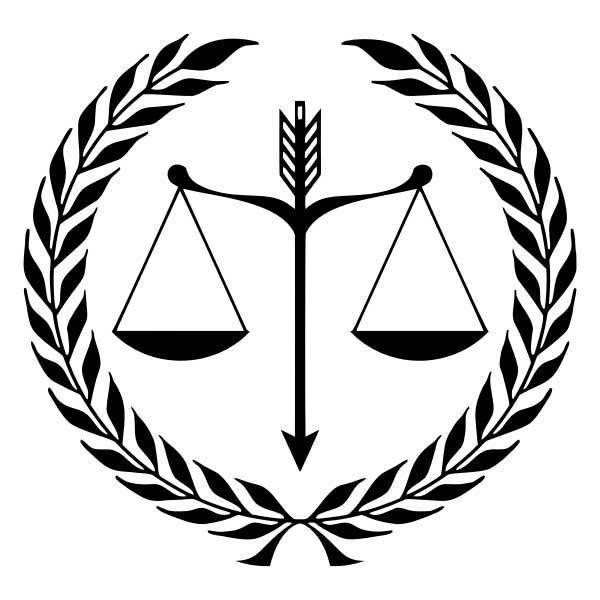
Abstract: Philosophical arguments over the justifications and implications of intellectual property ownership, already a deeply complex debate topic, become increasingly complicated in legal cases that dispute trademarks over culturally significant intangible assets. Legal cases such as Harjo v. Pro-Football, Inc. (1992) reflect an unresolved tension between the desire to protect cultural property and maintain freedom of expression. Many individuals, cultural groups, or organizations who belong to a particular cultural identity aim to protect culturally significant assets from potential instances of disparagement, appropriation, and misuse due to trademarks. However, the Supreme Court ruled that disparagement can no longer be a basis for revoking a trademark in Matal v. Tam (2017) on the grounds that the government would be practicing viewpoint discrimination. Nevertheless, the government still has a responsibility to create a platform for individuals to claim disparagement. Two solutions must be considered in order to resolve this tense legal and ethical dispute: legally mandated mediation and public discourse. Legally mandated mediation would circumvent the concerns raised in Matal v. Tam (2017) by placing the onus on the involved parties to reach a resolution, while public discourse would serve to resolve the ethical concerns of ownership and free speech that the law fails to resolve.
“Beauty: The Unlimited Potential Within Us”
By Julia Burgess

Abstract: The question of beauty and aesthetics has been posed and pondered throughout time and history. The concept of beauty through a purely objective lens is not only difficult to fully comprehend, but it creates a toxic mindset regarding one’s self and the world, and it damages the very notion of beauty. Contrastingly, while beauty is subjective, to believe that beauty has no widely accepted definition is equally as damaging. Beauty is subjective, yet we have an understanding of what is beautiful and what is not. Beauty is the evocation of aesthetic pleasure in conjunction with emotional significance placed on it by individuals. I lay out the main philosophical theories of beauty, challenge their definitions of beauty, some limited and some broad, and ultimately decipher and create my own theory of beauty that combines the aesthetic emotional experience with the subjectivity of personal significance.
“How does a Civilization as a Collective Entity Perpetuate Itself?”
By Jingwei Zhan
Abstract: Human conflict on an enormous scale is often created by disagreement over three fundamental questions: What race is superior? What form of political system is best? What ideology is most essential? Throughout history, little consensus has existed regarding such fundamental questions. Conflict appears to play a crucial role in human civilization, yet civilization is a collective entity in which individuals with distinct wills live collectively and collaboratively when facing social challenges. This character as a collective entity is essential to human society but it is not clear that a set of predictable properties forms such a collective entity. This thesis argues that an essential feature of civilization as a collective entity is its transformative nature: its consistent abilities to evolve and re-establish itself through moments of eruption such as social revolution, technological innovation, natural disasters, and human warfare, to restabilize itself and resist its inherent instability. As a result, civilizations are perpetuated by the self-interest and individual drive of individuals that makes the movement of civilization perpetuating but on an arbitrary and non-deterministic path, making infinite possibility for the future.